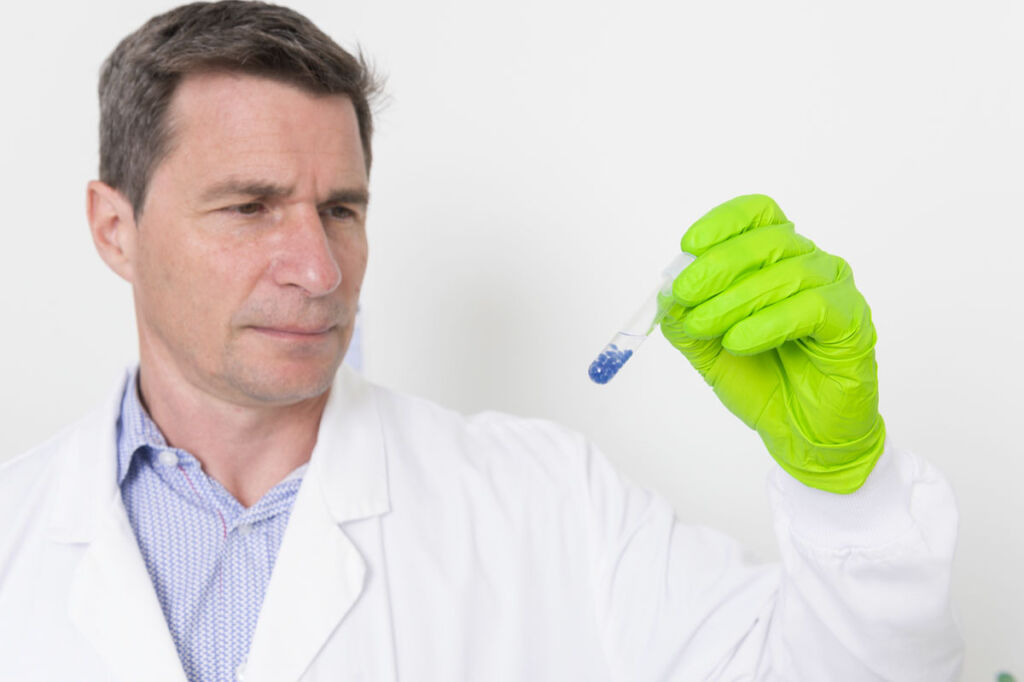A first launch for EasyCov
On November 28, the French National Authority for Health issued a positive opinion on the use and reimbursement of the Sars-Cov-2 rapid detection test developed by the Sys2Diag joint laboratory (CNRS/Alcen) in Montpellier. For the time being, use of this test is subject to certain conditions: only symptomatic patients for whom nasopharyngeal sampling is impossible or difficult can benefit from it. And any positive result must be confirmed by a conventional PCR test. Half-hearted reactions from its developers...

Doubtful about a possible Sars-Cov-2 infection? It would be so easy if you could take a simple saliva sample and get the test result in just 40 minutes. Such a test exists, and it's called EasyCov. Hundreds of thousands of copies have been sold abroad for several months now... but not in France. And yet, ironically, the device was designed in Montpellier. Certified by the " European conformity " mark last June, its deployment in France has until now been subject to the opinion of the French Health Authority (HAS).
Use limited by the HAS
Interviewed on November 26, the expected day of the HAS verdict, Franck Molina, CNRS researcher at Sys2Diag, was certainly impatient but confident: " The clinical study carried out with the CHU is unequivocal and shows the extremely good performance of the test. The Haute Autorité is doing a remarkable job, but we would have liked to deploy it earlier to cope with the second wave."
On November 28, however, the scientists from Montpellier expressed more qualified satisfaction. While the HAS has issued a positive opinion on the use and reimbursement ofEasyCov, "which is already a major step forward ", Franck Molina points out, it has limited the test to symptomatic patients for whom nasopharyngeal sampling is impossible or difficult to perform, and has imposed an RT-PCR test in the event of a positive result. For the time being, this restriction limits the interest of this rapid salivary test, " but we are already working with the HAS to extend its scope ", continues the researcher.
40 minutes from sampling to diagnosis...
EasyCov is a PCR test like the classic RT-PCR tests currently used, but it differs radically from them, thanks to LAMP-PCR technology, which offers a number of advantages. First of all, the sample is taken in the saliva rather than the nasopharynx: " It ' s a self-sampling procedure, which is simpler and more readily accepted by the public. You can do the test as many times as you like, which makes life easier for caregivers," explains Franck Molina.
Analysis is simplified too. There's no need for laboratories or machines: the virus extraction and purification steps required for amplification in RT-PCR are replaced by a simple heating process. " The analysis is carried out in two stages: heating at 80° for ten minutes, followed by heating at 65° for 30 minutes to amplify the virus using LAMP technology. The test consumes very few enzymes and almost none of the products that are so hard to find in times of crisis ", continues the researcher. Few products and therefore very low cost.
Finally, the diagnosis is delivered immediately via an application developed in partnership with Montpellier-based company Vogo. " The application provides a real-time diagnosis using a colorimetric system: yellow if positive, brick orange if negative. The result is immediately transmitted to the relevant authority: ARS, doctor, airport authority, sports club medical staff...." concludes Franck Molina. And here again, the time saved for medical staff is considerable.
One study, but two different interpretations
The EasyCov test therefore ticks all the boxes in terms of product availability, large-scale development, social acceptability and low cost to society. Better still, it is also more reliable than conventional RT-PCR, according to a clinical study carried out by Professor Jacques Reynes' team at Montpellier University Hospital, on over 500 patients, including 450 drive patients in real-life situations. " It's interesting because we tested it in real life. These patients were tested with the EasyCov salivary test, and with the RT-PCR technique on nasopharyngeal and salivary samples," explains Franck Molina.
And the results are unequivocal for the Montpellier-based company: " The EasyCov test detects 88% of infected patients, compared with less than 70% for the nasopharyngeal RT-PCR test. It has a specificity of over 99%, i.e. less than 1% false positives ". And therein lies the rub. Based on the same study, HAS concludes that specificity is 92%.
Why such a difference? Because the HAS considers that only the nasopharyngeal PCR test is authentic. In other words, if a patient is positive to the EasyCov test and the salivary RT-PCR laboratory test, but negative to the nasopharyngeal RT-PCR test, it considers the first two results to be false-positive, resulting in a lower specificity rate.
A collective adventure in Montpellier
Pending a new opinion, Franck Molina's team continues to make progress in consultation with the HAS. The researcher remains positive: " Under normal circumstances, it would have taken several years to develop and market such a test. We worked seven days a week, almost 24 hours a day, to squeeze in the time and respond to the urgency. All of this in a context made difficult by the initial containment, but that didn't stop many players from answering the call from the Sys2Diag laboratory. Public-sector partners included the infectiology department of Montpellier University Hospital, theMontpellier Infectiology Research Institute (IRIM) located on the CNRS site, the UM DNA and oligonucleotide synthesis platform, and Monsef Benkirane's team at theInstitute of Human Genetics (IGH). But also private companies such as Vogo and numerous local and regional laboratories. " It's not just Sys2Diag, it's a Montpellier operation. We've experienced a human adventure that we don't hope to repeat, but which has left its mark on us individually and collectively," concludes Franck Molina. An adventure recognized by the MUSE innovation prize.